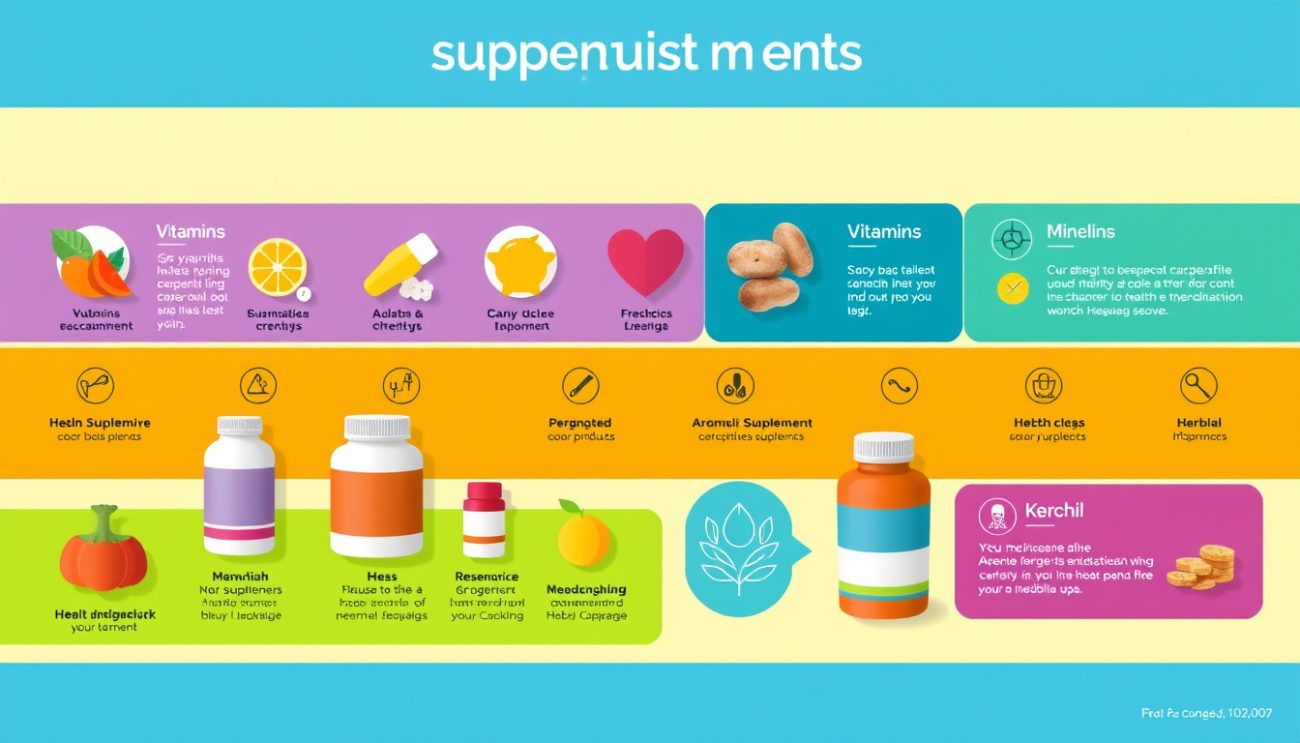Unlocking Optimal Health: The Essential Guide to Nutritional Supplements for Everyone
Nutritional supplements have become a significant element in modern health practices, embraced by millions worldwide seeking to enhance well-being, fill dietary gaps, or support specific health conditions. Despite their popularity, understanding the role, benefits, limitations,

Nutritional supplements have become a significant element in modern health practices, embraced by millions worldwide seeking to enhance well-being, fill dietary gaps, or support specific health conditions. Despite their popularity, understanding the role, benefits, limitations, and safety of nutritional supplements is crucial for making informed decisions. This comprehensive guide explores the essentials of nutritional supplements—what they are, who needs them, types available, and best practices to harness their potential safely.
What Are Nutritional Supplements?
Nutritional supplements are products designed to complement the diet, providing nutrients that may be missing or insufficient in a person’s daily food intake. These nutrients include vitamins, minerals, amino acids, herbs, and other botanicals or dietary substances. Supplements come in various forms, such as tablets, capsules, powders, and liquids.
Unlike medications, supplements aim to support health rather than treat or cure diseases. According to the U.S. Dietary Supplement Health and Education Act (DSHEA) of 1994, dietary supplements are intended to increase the total dietary intake by supplementing the diet but are not classified as drugs and cannot claim to diagnose, cure, or prevent illnesses.

Why Do People Use Nutritional Supplements?
People turn to supplements for numerous reasons:
- Nutrient Deficiencies: Individuals who cannot meet nutritional needs through diet alone due to restrictions, allergies, or health conditions.
- Life Stages: Pregnant women are often recommended to take prenatal vitamins containing folic acid to support fetal development.
- Health Conditions: Certain conditions may impair nutrient absorption, necessitating supplementation.
- Performance and Recovery: Athletes and active individuals may use supplements to enhance performance or aid muscle recovery.
- General Wellness: Some use supplements with the belief they support overall health, longevity, or specific systems such as bone, heart, or brain health.
Types of Nutritional Supplements
Nutritional supplements encompass a broad range of substances. Here are the main categories:
1. Vitamins
Essential organic compounds crucial for normal metabolism and physiological functions. Common vitamins in supplements include A, C, D, E, K, and the B-complex (B1, B2, B3, B6, B7, B9, B12). Vitamins can support immune function, bone health, energy metabolism, and more.
2. Minerals
Inorganic elements needed for body structural components and regulatory functions. Important minerals include calcium, iron, magnesium, zinc, manganese, and potassium. They contribute to muscle function, oxygen transport, enzyme activity, and tissue repair.
3. Amino Acids and Proteins
The building blocks of proteins, amino acid supplements may assist in muscle repair and growth, especially in physically active people.
4. Herbal and Botanical Supplements
Derived from plants, these include substances like ginseng, echinacea, garlic, and turmeric. They often contain various active compounds thought to confer health benefits, although scientific evidence varies.
5. Essential Fatty Acids
Omega-3 and omega-6 fatty acids support cardiovascular health, brain function, and inflammation control.
6. Other Supplements
Includes probiotics (beneficial bacteria), fiber supplements, antioxidants, and specialty formulations aimed at fertility, prenatal care, beauty, or joint health.
Are Nutritional Supplements Necessary?
Not everyone requires supplements. A well-balanced diet rich in diverse foods typically provides the necessary nutrients for most individuals in good health. However, certain groups or conditions may benefit from supplementation, including:
- Pregnant or breastfeeding women
- Older adults with decreased nutrient absorption
- Individuals on restrictive diets (e.g., vegan, vegetarian)
- Those with certain medical conditions (e.g., anemia, osteoporosis)
- People experiencing chronic pain or inflammation, such as chronic low back pain, where some herbal supplements have shown preliminary benefits
It is important to recognize that supplements are meant to complement, not replace, a healthy diet.
Effectiveness and Scientific Evidence
The scientific support for nutritional supplements varies by type and indication:
-
Vitamins and Minerals: Clear evidence supports supplementation in cases of deficiency, such as iron in anemia or vitamin D in deficiency states. However, supplementation beyond recommended levels for people with adequate nutrition often lacks proven benefit.
-
Herbal Supplements: Some herbs, such as willow bark for pain or capsicum plasters for musculoskeletal discomfort, show moderate evidence of efficacy in certain acute conditions. Yet, rigorous clinical evidence remains limited, and effects may vary.
-
Homeopathic Remedies: Generally lack conclusive scientific support for physiological effects.
-
Emerging Research: Intramuscular vitamin B12 injections have shown promise in improving disability among patients with chronic low back pain in isolated studies, warranting further investigation.
Safety and Risks
While nutritional supplements can offer benefits, safety considerations are paramount:
-
Potential Interactions: Supplements may interact with prescription or over-the-counter medications, altering their effects or causing adverse reactions.
-
Adverse Effects: High doses of certain vitamins (e.g., vitamin C causing diarrhea) or herbal products (e.g., capsicum causing gastrointestinal discomfort or headache) may lead to side effects.
-
Quality Control: Unlike pharmaceuticals, supplements are not subjected to the same strict regulatory oversight, increasing the risk of contamination or mislabeling with undeclared substances, including banned substances in athletic contexts.
-
Contraindications: Some supplements may not be suitable for people with kidney or liver disease or other metabolic concerns.
Consultation with healthcare professionals before starting any supplement regimen is essential to minimize risks.
Regulatory Landscape
In the United States, supplements are regulated as food products under the FDA’s guidelines. Manufacturers are responsible for ensuring product safety and truthful labeling but do not need to obtain FDA approval before marketing. Claims are limited to structure and function rather than disease treatment unless substantiated and approved as drugs.
Similar regulatory frameworks exist in the European Union and other regions, emphasizing safety, labeling accuracy, and consumer protection.
Cost Considerations
The price of supplements ranges widely depending on type, quality, and source. Common vitamins and minerals are generally affordable, while proprietary or specialized formulations can be costly. Counseling services by healthcare providers for supplement guidance may have additional fees.
The cost-effectiveness of many supplements, especially for chronic conditions, remains to be fully established.
Practical Recommendations for Using Nutritional Supplements
- Assess Your Diet First: Aim for a balanced diet rich in fruits, vegetables, whole grains, lean proteins, and healthy fats before considering supplements.
- Consult Professionals: Seek advice from doctors, registered dietitians, or pharmacists about the need for supplements based on individual health status.
- Read Labels Carefully: Understand ingredient lists, dosages, and caution statements.
- Be Wary of Overpromising Claims: Supplements should not replace medical treatments or be viewed as cures.
- Monitor for Side Effects: Discontinue use if adverse effects occur and report concerns to healthcare providers.
- Choose Reputable Brands: Prefer products tested for quality and free from contaminants.
Conclusion
Nutritional supplements can play a supportive role in achieving optimal health, particularly for individuals with increased nutritional needs or dietary restrictions. However, they are not a one-size-fits-all solution and should be integrated thoughtfully into an overall health strategy prioritizing balanced nutrition and professional guidance. Continued research and regulatory vigilance are essential to ensure safety, efficacy, and informed consumer choices in the evolving landscape of nutritional supplementation.
References:
- Gagnier, J.J. (2012). Nutritional, Herbal, and Homeopathic Supplements. Evidence-Based Management of Low Back Pain.
- Mayo Clinic Staff. Nutritional supplements. Mayo Clinic. https://www.mayoclinic.org
- Dietary Supplement Health and Education Act of 1994 (DSHEA), U.S. FDA.
- National Institutes of Health Office of Dietary Supplements. https://ods.od.nih.gov
- Wikipedia contributors. Dietary supplement. Wikipedia, The Free Encyclopedia. https://en.wikipedia.org/wiki/Dietary_supplement
Note: This article is for informational purposes and does not substitute professional medical advice.



